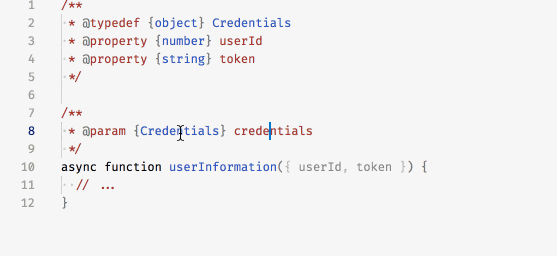async function userInformation({ userId, token }) {
const body = {
user: userId
};
const headers = {
Authorization: `Bearer ${token}`,
'Content-Type': 'application/x-www-form-urlencoded'
};
const url = 'https://example.com/api/users';
const data = await axios.post(url, headers, qs.stringify(body));
return data;
}
考虑以下代码 如何为这个函数编写jsdoc? 如何确保在jsdoc中定义了参数类型?
